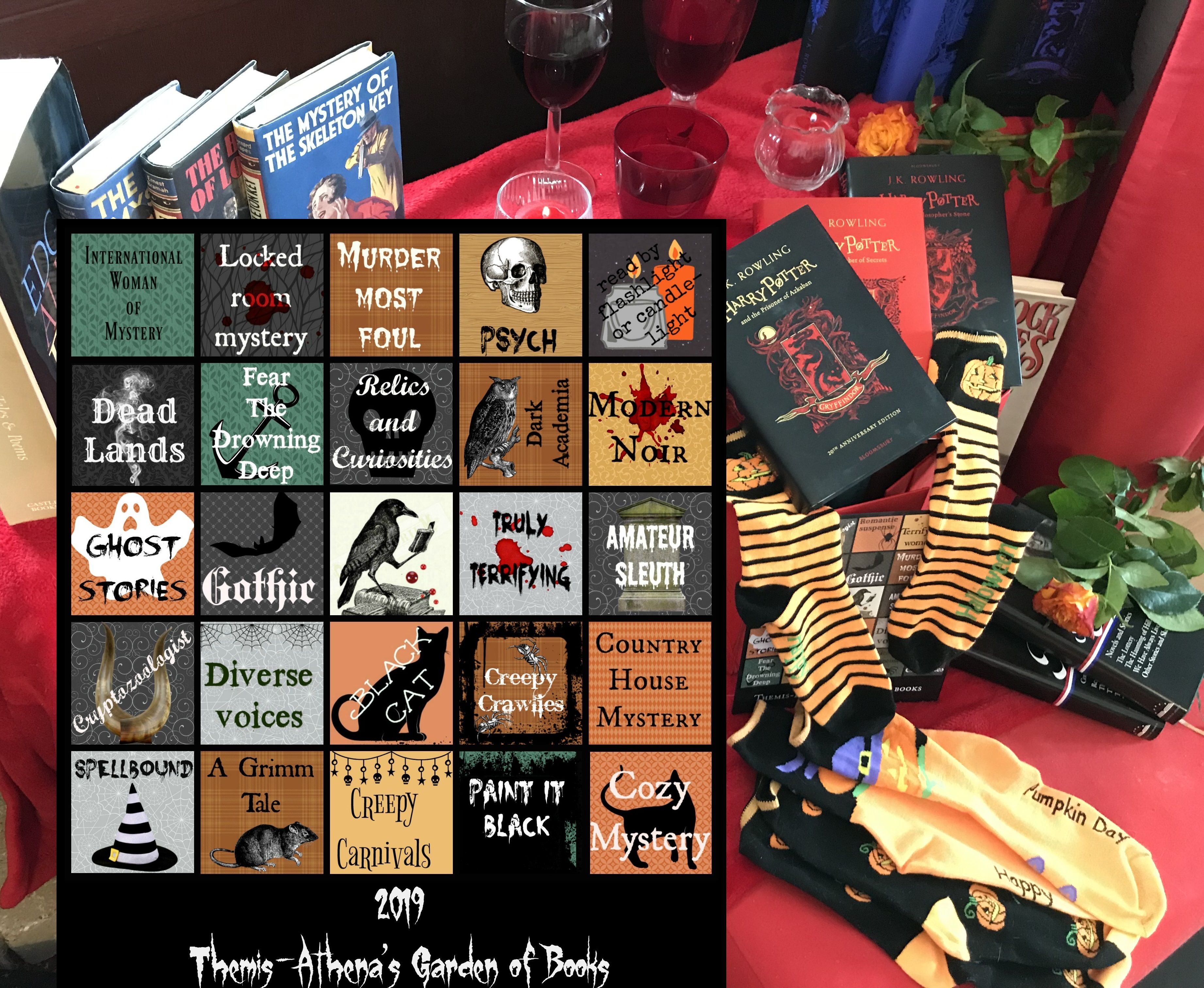

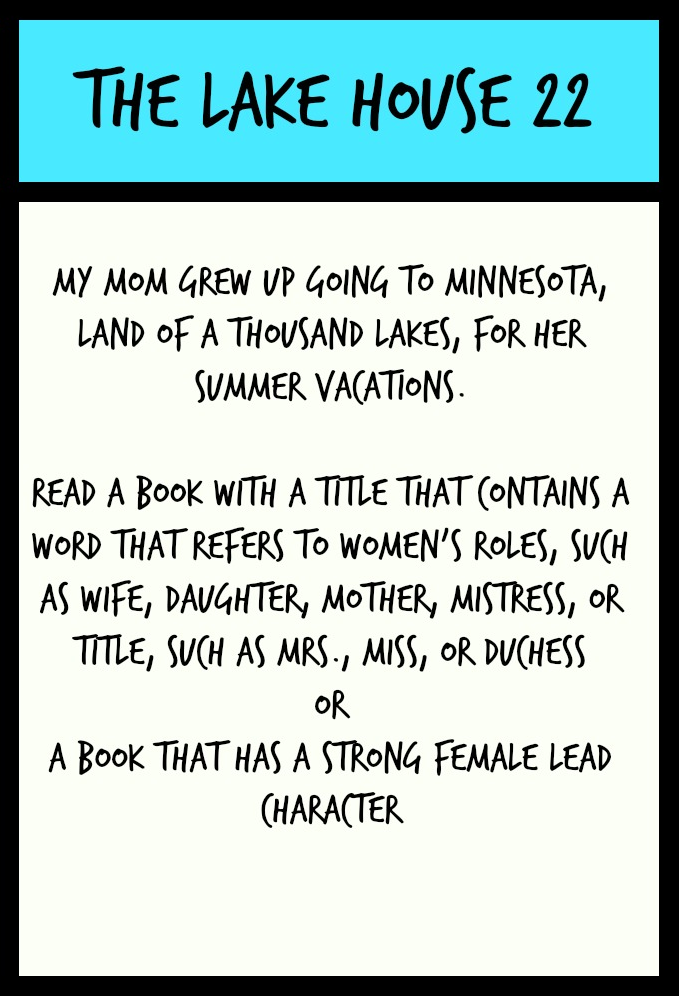

Well, at least I didn't DNF my last 2 reads (but then, at least with the Christie I didn't expect that to happen anyway). Still, since I collared another double, let's play it safe (again) in this round ...





Well, at least I didn't DNF my last 2 reads (but then, at least with the Christie I didn't expect that to happen anyway). Still, since I collared another double, let's play it safe (again) in this round ...


Tracking courtesy of Charlie and Sunny, as always, of course!
SPACES AND DICE ROLLS
1. Author is a woman -- Patricia Wentworth: Pilgrim's Rest (finished April 1, 2020)

2. Genre: mystery
3. Set in the twentieth century
4. Published in 2019
5. Published in 2018
6. Title has a color word in it
7. Author's last name begins with the letters A, B, C, or D -- Margery Allingham: Sweet Danger (finished April 2, 2020)
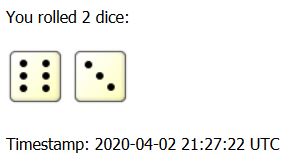
8. Author's last name begins with the letters E, F, G, or H.
9. Author's last name begins with the letters H, I, J, or K
10. Author's last name begins with the letters L, M, N or O
11. Author's last name begins with the letters P, Q, R, or S
12. Author's last name begins with the letters T, U, V, W, X, Y, or Z
13. Author is a man
14. Author is dead
15. Genre: romance
16. Genre: fantasy -- Marie Brennan: A Natural History of Dragons (finished April 6, 2020)

17. Genre: horror
18. Set in a school
19. Set in the UK
20. Set in a country that is not your country of residence
21. Set in Europe -- Joy Ellis: The Patient Man (finished April 7, 2020)
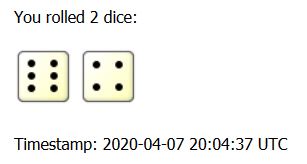
22. Set in Asia
23. Set in Australia/Oceania
24. Set in Africa
25. Snake - go back to 5
26. Part of a series that is more than 5 books long
27. Set during WWI or WWII
28. Written between 1900 and 1999
29. Someone travels by plane
30. Someone travels by train
31. Road trip -- Ellis Peters: A Morbid Taste for Bones (finished April 8, 2020)
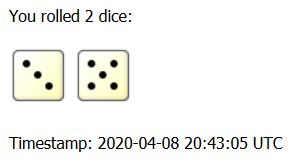
32. Genre: thriller
33. Set in North America
34. Snake - go back to 1
35. Has been adapted as a movie
36. Set in Central or South America
37. Has won an award
38. Newest release by a favorite author
39. A reread -- Ngaio Marsh: Enter a Murderer (finished April 9, 2020)
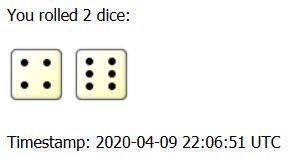
40. Characters involved in the entertainment industry
41. Characters involved in politics
42. Characters involved in sports/sports industry
43. Characters involved in the law
44. Characters involved in cooking/baking
43. Characters involved in medicine
44. Characters involved in science/technology
45. A book that has been on your tbr for more than one year
46. A book that has been on your tbr for more than two years
47. Snake - go back to 19
48. A book you acquired in February, 2019.
49. Recommended by a friend -- Ngaio Marsh: A Man Lay Dead, plus Death on the Air and Other Stories (both books finished April 10, 2020)
(Rereading the first Roderick Alleyn mystery in honor of the friend who introduced me to them many years ago. -- ETA: Tagged on Marsh's short stories when I noticed that the audio of A Man Lay Dead runs just short of 5 hours 30 minutes.)

50. Has a domestic animal on the cover
51. Has a wild animal on the cover
52. Has a tree or flower on the cover
53. Has something that can be used as a weapon on the cover -- Ngaio Marsh: Scales of Justice (finished April 11, 2020)
(I used the present weekend buddy read for this one, as my print edition has fishing tackle on its cover -- hook, line and all.)

54. Is more than 400 pages long
55. Is more than 500 pages long
56. Was published more than 100 years ago
57. Was published more than 50 years ago
58. Was published more than 25 years ago
59. Was published more than 10 years ago
60. Was published last year
61. Cover is more than 50% red -- Anne Perry: Defend and Betray (finished April 16, 2020)
(Go figure, I could have used the audio version of Scales of Justice fo rthis one as well ...)

62. Cover is more than 50% green
63. Cover is more than 50% blue
64. Cover is more than 50% yellow
65. Snake - go back to 52
66. Part of a series that is more than 10 books long -- Ngaio Marsh: When in Rome (finished April 17, 2020)
(Nothing like Alleyn in Italy as a palate cleanser after the train wreck that Perry's book turned out ot be.)
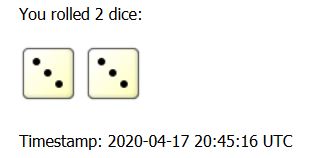
67. Set in a city with a population of greater than 5 million people (link)
68. Something related to weddings on the cover
69. Something related to travel on the cover
70. Something related to fall/autumn on the cover
71. Involves the beach/ocean/lake
72. Involves the mountains/forests -- Charles Portis: True Grit (finished April 18, 2020)
(I checked -- their trip takes them through the mountains, at least part of the way.)
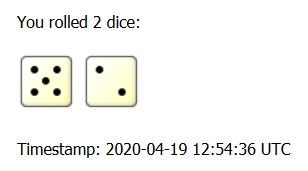
73. Categorized as YA
74. Categorized as Middle Grade
75. Set in a fantasy world
76. Set in a world with magic
77. Has a "food" word in the title
78. Set in a small town (fictional or real)
79. Main character is a woman -- Sara Paretsky: Indemnity Only (finished April 21, 2020)
(Somehow I never got around to the first V.I. Warshawski novel. Now just may be the moment to make up for that.)

80. Main character is a man
81. Ghost story
82. Genre: urban fantasy
83. Genre: cozy mystery
84. Genre: police procedural -- Lee Goldberg: Lost Hills (finished April 22, 2020)
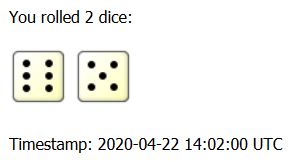
85. Written by an author who has published more than 10 books
86. Author's debut book
87. Snake - go back to 57
88. Comic/graphic novel
89. Published between 2000 and 2017
90. A new-to-you author
91. Snake - go back to 61
92. Reread of a childhood favorite
93. Author's first/last initial same as yours (real or BL handle)
94. Non-fiction
95. Memoir -- Anne Fadiman: Confessions of a Common Reader (finished April 22, 2020)
and Rafik Schami: Murmeln meiner Kindheit (My Childhood's Marbles) (finished April 23, 2020) (since Fadiman's book falls just a bit short of the game's minimum requirements).

96. From your favorite genre
97. Title starts with any of the letters in SNAKE
98. Title starts with any of the letters in LADDERS
99. Snake - go back to 69
100. Let BL pick it for you: post 4 choices and read the one that gets the most votes!
Poll posted separately -- BL community pick:
Val McDermid: Broken Ground (finished April 27, 2020).
RULES OF THE GAME:
Everyone starts on 1. There are two alternative ways to move forward.
1. Read a book that fits the description on the space number as listed below and you can roll two dice to move forward more quickly.
2. However, if you can't find a book to fit the square, don't worry about it. You can read any book, and roll one dice on random.org. This is to ensure that if a reader cannot find a book to fill the square, no one gets bogged down and can't move on.
All books must be at least 200 pages long. Short stories count, so long as you read enough of them from a collection to equal 200 pages.
You do not need to hit space 100 with an exact roll. In order to win, you must complete space 100 as written.
ADDITIONS TO THE RULES
When you start on square 1, you need to read a book before you can roll. If your book fills the square, you get to roll two dice. If your book doesn't not fit the square, roll one dice only.
With respect to the ladder squares: You must read a book in order to climb the ladder. Once you finish the book for the ladder square, climb the ladder to the ending square. If you read a book that fits the ending square, roll two dice to move on, otherwise, roll one dice.
For audiobook substitutions, either check the print book to determine if it is more than 200 pages long, or any audiobook that is a minimum of 5 hours & 30 minutes qualifies.
I never got around to doing this at the end of February, so what the heck ... I might as well include the first two weeks of March, since that month is half over at this point already, too. But then, February was such a universal suck-fest in RL that I didn't even make it here for the better part of the month to begin with. (Don't even ask.) So much for my hope back in January that things might be looking up ...
So, lots and lots of comfort reading in the past 1 1/2 months; Golden and Silver Age mysteries aplenty, both new and from the reread department -- but I also managed to honor Black History Month and advance my Around the World, Women Writers, and 221B Baker Street and Beyond reading projects. In perhaps the weirdest turnout of the past couple of weeks, I even managed to include two "almost buddy reads" (reading books that others had recently finished or were reading concurrently -- Patricia Moyes's Dead Men Don't Ski and Freeman Will Crofts's The Cask) and, before vanishing into my February RL black hole, a real buddy read with BT of John Bercow's excellent (though somewhat unfortunately-titled) memoir, Unspeakable.
Number of books read since February 1: 27.
Of these:
Black History Month
Chimamanda Ngozi Adichie: We Should All Be Feminists
Yaa Gyasi: Homegoing
Gaël Faye: Petit pays (Small Country)
Around the World
-- counting only books by non-Caucasian authors and / or set neither in Europe nor in the mainland U.S.:
The three above-mentioned books, plus
Sonia Sotomayor: My Beloved World
Mia Alvar: In the Country
Matthew Pritchard (ed.), Agatha Christie: The Grand Tour: Letters and Photographs from the British Empire Expedition 1922
221B Baker Street and Beyond
Terry Manners: The Man Who Became Sherlock Holmes
Keith Frankel: Granada's Greatest Detective
Golden Age Mysteries
4 by Ngaio Marsh (all rereads): Overture to Death, Light Thickens, Dead Water, Death at the Bar
4 by Margery Allingham (2 rereads, 2 new): The Beckoning Lady, Death of a Ghost, Mystery Mile, Black Plumes
1 by Patricia Wentworth (new): The Case of William Smith
2 by J. Jefferson Farjeon (both new): Seven Dead and Thirteen Guests
1 by Raymond Postgate (new): Somebody at the Door
1 by Freeman Wills Crofts (new): The Cask
Silver Age and Other Mysteries
Patricia Moyes: Dead Men Don't Ski (new)
Colin Dexter: Last Bus to Woodstock (reread)
Ellis Peters: The Sanctuary Sparrow (reread)
P.D. James / BBC Radio: 7 dramatizations (Cover Her Face, Devices and Desires, A Certain Justice, A Taste for Death, The Private Patient, The Skull Beneath the Skin, and An Unsuitable Job for a Woman) -- all revisits as far as the actual books were concerned, as was the dramatization of The Skull Beneath the Skin; the rest of the audios were new to me)
Other Books
John Bercow: Unspeakable (memoir)
Tony Riches: Henry (historical fiction)
Of all of these, the standout entries were:
Gaël Faye: Petit pays (Small Country)
A short but impactful novel tracing the coming-of-age of the son of a French father and a Burundian Tutsi mother, which coming-of-age is rudely interrupted when the genocide in neighboring Rwanda spills over into Burundi. What starts out as an endearing but somewhat unremarkable read becomes a tale of unspeakable heartbreak in the final part, in which it only took very few pages for the book to completely skewer me.
Sonia Sotomayor: My Beloved World
Justice Sotomayor's memoirs of her upbringing in the New York Puerto Rican community, and her unlikely, but doggedly pursued path to Princeton, Yale Law School, and ultimately, the Federal Bench -- fullfilling a dream that had, oddly, started by watching Perry Mason on TV as a child. I wish Sotomayor hadn't finisihed her book with her appointment as a judge, though I respect the reasons why she decided to do so; and even so, hers is a truly impressive, inspiring story of overcoming a multitude of crippling conditions (type-1 diabetes, poverty, racism, and teachers discouraging rather than inspiring her, to name but a few) to chart out a path in life that even most of those who didin't have to overcome any of these odds would not dare to aspire to. Throughout the narrative, Sotomayor's genuine empathy with and care for her fellow human beings shines through on many an occasion; not only for her family and friends, and for those disadvantaged by society, but for everybody she encounters -- until and unless they rub her the wrong way, in whch case they will find themselves at the receiving end of a tongue lashing or two. What particularly impressed me was that Sotomayor, though a staunch defender of Affirmative Action, repeatedly chose not to seek positions as a minority candidate but on a more neutral ticket, fearing she might unduly be buttonholed otherwise. That sort of thing takes great strength and belief in the universality of her message.
Matthew Pritchard / Agatha Christie: The Grand Tour: Letters and Photographs from the British Empire Expedition 1922
Agatha Christie's letters, photos and postcards from the expedition to South Africa, Australia, New Zealand, Hawaii, and Canada in which her first husband, Archibald, and she were invited to participate out of the blue shortly after the birth of their daughter Rosamund. Lovingly edited by her grandson Matthew Pritchard, and amplified by the corresponding excerpts from her autobiography, the letters in particular shed an interesting sidelight onto the thinking and life experience of the then-budding future Queen of Crime (her second novel was published while the tour was under way), and to fans, the book is worth the purchase for her photos alone (she had rather a good eye for visual composition, too) ... and for her surfing adventures, reproduced here in their full glory, and in both words and images.
John Bercow: Unspeakable
An impromptu boddy read with BrokenTune; delivered in Bercow's trademark style and doubtlessly offering as much fodder to those determined to hate him as to those who regret his stepping down as Speaker. I commented on the bits up to the Brexit chapter in a status update at the 70% point; the final part of the book contains much that Bercow had already said repeatedly while still in office, be it in interviews or from the Speaker's chair; yet, while he doesn't hold back with criticism of those whose stance he considers irresponsible, he is also scrupulously fair to all those who, he genuinely believes, are working hard to realize the political aims they consider in the best interests of theiri constituents. In fact, the chapter about what, in Bercow's opinion, makes a "good" politician, was possibly the most surprising inclusion in the book (and the book worth a read for that chapter alone), heaping praise (and in some instances, scorn) on a wide array of politicians of all parties, regardless whether Bercow shares their views or not. -- Even if no longer from inside the Houses of Parliament, I hope and trust Bercow's voice will remain relevant and weighty in the months and years to come.
Patricia Moyes: Dead Men Don't Ski
A huge shout-out to Moonlight Reader for favorably reviewing this book earlier this year and thus bringing it to my attention. Henry Tibbett and his wife Emmy are a joy to be with, and like MR and Tigus (who has also read the book in the interim), I'll definitely be spending more time in their company in the future. What I particularly appreciated in addition to the delightful characters created by Ms. Moyes (and the rather cleverly-constructed locked-room mystery at the heart of this book) was the understanding she brought to the book's setting in the German-speaking part of the Italian Alps, which is not only one of the most naturally stunning parts of the entire Alps but also a region fraught with a complicated history, which might have caused a lesser writer to glide off into easy cliché, but which Moyes uses rather skillfully in crafting her story's background.
Ngaio Marsh: Light Thickens
The final book of the Roderick Alleyn series and perhaps not everybody's cup of tea, set, as it is, in Marsh's "main" professional domain -- the world of the theatre -- and featuring a plot in which the murder only occurs at the halfway point, almost as an afterthought: and yet, upon revisiting the book, I instantly realized all over again why this (the first mystery by Marsh I'd ever read) was the one book that irresistibly drew me into the series and made me an instant fan. This isn't so much a mystery as a Shakespearean stage director's love letter to the Bard, and to his "Scottish play" in all of its permutations; as well as to the Shakespearean theatre, and more generally, the world of the stage as such. Roderick Alleyn (rather far advanced in his career and definitely not having aged in real time) eventually shows up to solve the inevitable murder, faithful sidekick Inspector ("Br'er") Fox in tow and quoting Shakespeare with the best of them, but the stars of the show remain the actors themselves, the play's director (whom those who read the series in order will, at this point, already have encountered in a prior installment), and ultimately, Shakespeare himself. This may not be everybody's cup of tea in a mystery ... to me, it proved irresistible, the first time around as much as upon revisiting the book now.
Margery Allingham: Death of a Ghost
Unlike my reading experience with Allingham's fellow Golden Age Queens of Crime Dorothy L. Sayers, Agatha Christie and Ngaio Marsh, that with Margery Allingham's Albert Campion series is a rather checkered one, where instances of true mystery reader's delight repeatedly follow hot on the heels of groan-inducing forays into clichéd, implausible plots populated by cardboard characters, and vice versa. That said, even upon my first read I considered Death of a Ghost one of the series's absolutely standout entries, and that impression has only been confirmed and reinforced by revisiting the book. Set in the art world and populated by a cast of fully drawn, quirky characters (some likeable, some decidedly less so), the book lives off Allingham's acerbic wit, which is brought out to great advantage here; and although Campion tumbles to the probable identity of the murderer when we're barely halfway into the book, Allingham easily maintains the reader's interest by keeping the "how" a puzzle, and by tying in a further puzzle whose solution will eventually provide the motive for the murder. If there is any letdown in the book at all, it's in the murderer's ultimate fate, but by and large, this is a superlative effort.
As a side note, I've also concluded that the audio versions of Allingham's novels work decidedly better for me if read by Francis Matthews rather than David Thorpe. I have no problem with Thorpe as a narrator of other books, but he takes a rather literal approach to Allingham's description of Campion's voice, making it come across almost as a falsetto, which in combination with his overly expressive narration as a whole tends to drive me clean up the wall. Matthews's delivery, by contrast, while hinting at Campion's vocal patterns, is a bit more matter of fact overall (even though it still leaves plenty of room for characterization, both of people and of plot elements) -- an impression that was swiftly confirmed when a search for further Allingham titles recorded by Matthews threw up a non-Campion mystery of hers, Black Plumes, which in turn also confirmed my impression that some of Allingham's best writing is contained in books other than her Campion mysteries.
Overall, the past six (or so) weeks contained a lot of great books, regardless whether rereads or new to me. The two most-hyped entries in the selection -- Yaa Gyasi's Homegoing and Mia Alvar's In the Country -- proved, almost predictably (for me, anyway), those that I was least impressed with: they were both still solid 4-star reads, but both episodic in nature, with only some of those episodes engaging me as fully (and consequently, blowing me away as much) as, if I'd have believed the hype, I'd have expected the entire books to do. (I know, I know. 4 stars is still a very respectable showing, and I wouldn't give either book less than that ... and considering that I've been known to one-star overly hyped books when called for, 4 stars is even more pretty darned decent. Still ... they both, but particularly so Homegoing, would have had so much more potential if they'd been allowed to spread their wings to the full.) -- Of the Golden Age mysteries new to me, the standout was J. Jefferson Farjeon's Thirteen Guests. Tony Riches's Henry provides a well-executed conclusion to his series about the three first significant Tudors (Owen, Jasper, and Henry VII) -- neatly complementing Samantha Wilcoxson's novel about Henry VII's wife Elizabeth of York, Plantagenet Princess, Tudor Queen -- and the two books focusing on Jeremy Brett and the Granada TV Sherlock Holmes series starring him as Holmes have given me the idea for a Holmes-related special project, which I will, however, probably only get around to later this year (if I get around to it at all, my RL outlook being what it is at the moment).
Every year for the past two or three years, I've downloaded or pulled out, depending on format, a few short story anthologies that were specifically released for Christmas.
The Valancourt anthology of Victorian Christmas Ghost Stories was just far too tempting for me not to buy, and the Christmas Stalkings compilation is also new to me. I've owned The Big Book of Christmas Mysteries and Crimson Snow for a couple of years, but still haven't finished all of the stories even once.
Christmas Most Foul is available through the KU library, and I've read three out of the four stories included. Two are Albert Campion shorts by Margery Allingham that are just okay, and then there are two full-length novels: Thou Shell of Death by Nicholas Blake, which I really liked when I read it last year, and There Came Both Mist And Snow by Michael Innes, which I've not yet read and which is the reason that I borrowed the book again this year.
I usually read ten or fifteen Christmas shorts throughout the season.
Well, the third week really hit my bingo experience out of the ballpark this year -- and not only because it finished with my first completed bingo; that was actually just the icing on the cake. But it included no less than three absolutely knock-out fabulous books, plus a fourth that was almost as good -- and the remaining three, though not quite reaching this level, were at least mostly enjoyable, all in their own particular way. So without any further ado:


Sofi Oksanen: Fegefeuer (The Purge)![]()
Based on everything I'd previously heard about this book, it took me quite a while to get up my nerve to read it, because I knew I'd be in for a fairly merciless game of psychological hares and foxes -- which however, of course, meant that it would be a natural choice for the "Psych" bingo square.
Sofi Oksanen's The Purge contrasts the early 1990s' post-Soviet Union independent Estonia with that of the WWII and post-WWII era which had led to the country's being swallowed up by the Soviet Union. The setting in which this happens is the isolated farm where one of the novel's protagonists, has been living almost all her life, and where at the beginning of the book the other protagonist -- a young woman who is obviously on the run -- suddenly appears, seeking refuge. Although the two women have never seen each other in their entire lives (and the young refugee for all practical purposes is Russian rather than Estonian), it soon becomes clear that it is by no means an accident for her to show up in this place and none other. What follows is a dance macabre style exploration of death, guilt, betrayal, running away from versus accepting responsibility for one's own actions, and one (or two?) families' entanglement with Estonia's and the Soviet Union's brutal social and political order in the second half of the 20th century. This is an uncomfortable read, but it perfectly encapsulates the mental, psychological, political and social purge that every society will embark on both upon slipping into and upon freeing itself from a dictatorial system; and particularly in today's political climate it comes highly recommended.


Terry Pratchett: Guards! Guards!![]()
And talking about books that ought to be read, today more than ever, this turned out to be yet another one, right on the heels of Oksanen's. The eighth Discworld novel and the first book of the Night Watch subseries -- but first and foremost, an exploration of just how a political system can fail and slip into dictatorships right before everybody's eyes. Whatever it was that motivated Pratchett to write this book exactly 30 years ago, in the waning days of the Cold War, it is eerily prescient and feels as if it were written this or last year; so exactly does it foretell recent events (particularly in the UK and the U.S., but by far not merely there). There is, of course, also plenty of Pratchett's trademark pith and humor, and plenty of lines that, at least in the first part of the book, will make you laugh out loud; but in the second half, more often than not your laughter is going to get stuck right in your throat.
Oh, and in case anyone is wondering about my bingo square attribution, it features dragons. Plural -- but one in particular.

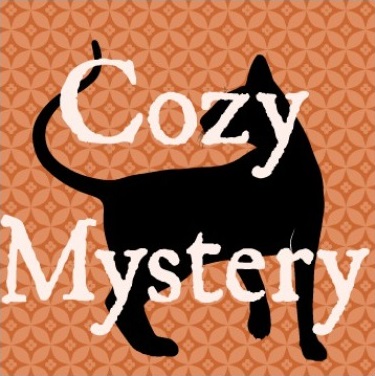
Margery Allingham: The White Cottage Mystery![]()
Allingham's first mystery, and it clearly shows off her talent as a writer from the start. As in the first Albert Campion book (The Crime at Black Dudley) and several of the subsequent Campion mysteries, there's an international "detour" -- here: literally so -- that is not in any way, shape and form necessary to the plot and that I could therefore have done without, and it's no particular surprise that Allingham later chose a somewhat more flamboyant hero for the series she would come to write. But for an afternoon's (or in my case, morning's) worth of entertainment this works very nicely indeed.


BBC Audio: The Lady Detectives![]()







... as of today; with my "virgin" card below for reference:

